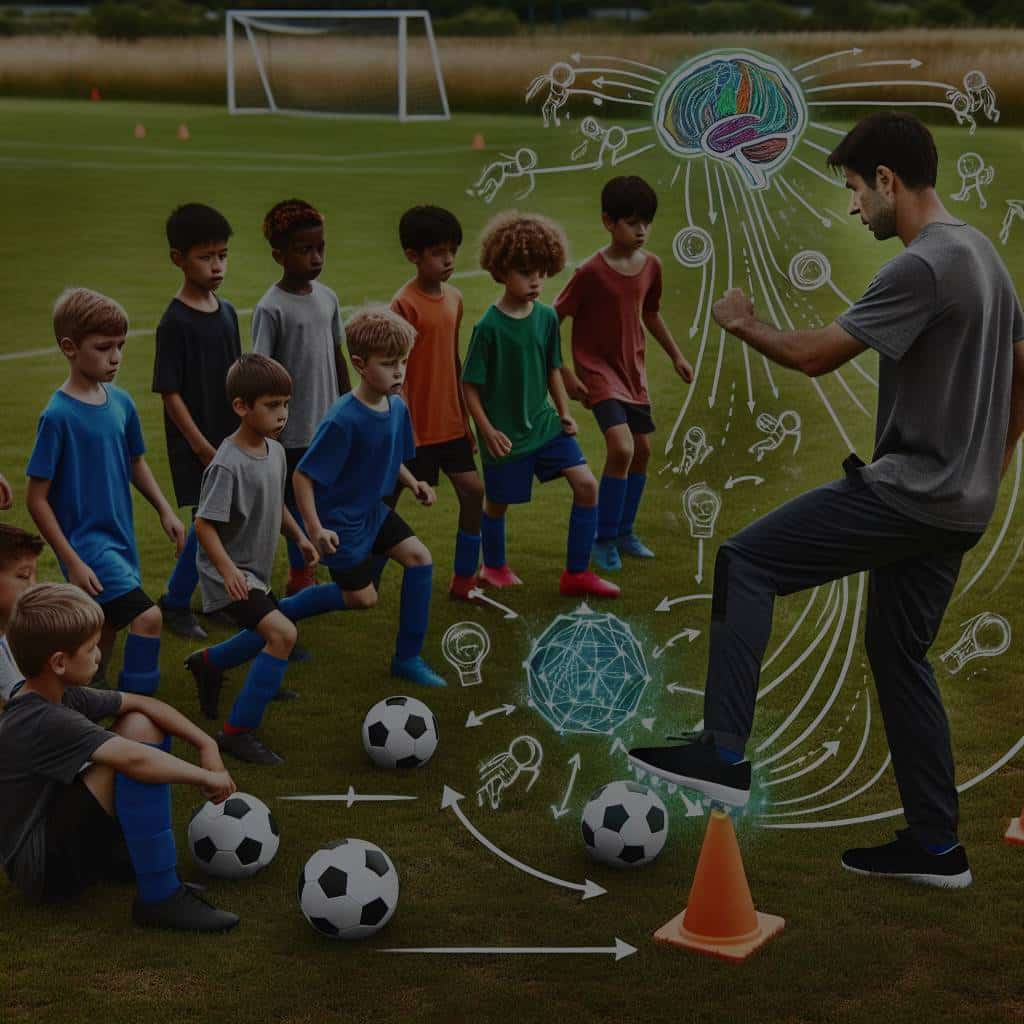How Can Youth Soccer Coaches Implement Cognitive Training Drills?

In the throbbing heart of soccer, it is the coach who influences the performance and growth of the players. The training methods designed and implemented by the coach play a pivotal role in shaping the future soccer stars. Particularly in the realm of youth soccer, it is crucial for the coach to infuse cognitive training drills in the routine practice. But how can they do that effectively? Let’s explore.
The Importance of Cognitive Training in Soccer
Cognitive training drills are not just about the physical aspect of the game. They also incorporate the mental and psychological elements that are equally crucial for a player’s development and performance on the field.
Also to discover : Unwrap excitement: your guide to fishing mystery boxes
Soccer is a game of quick decisions and sharp reactions. The ball may be round, but the game is full of curves, and every second counts. It is not only about controlling the ball but also controlling the mind. Cognitive skills in soccer include decision-making abilities, visual scanning, spatial awareness, and multitasking, among others.
Introducing cognitive training drills during practice can significantly enhance these skills among youth players. It can mold them into smarter, more tactical players who can react swiftly and tactfully to every situation on the pitch.
Also to see : What’s the Latest in Smart Clothing Technology for Monitoring Athlete Performance in Volleyball?
How to Incorporate Cognitive Drills in Training?
Coaches can employ various strategies to inculcate cognitive training drills in their regular training sessions. The key lies in embracing variety, creativity, and the right level of challenge for the players.
One effective method is to design drills that mimic real game scenarios. For instance, you can conduct a practice game where players have to make quick decisions based on game situations. You could also use props like colored cones to cue specific actions during the drill. This way, players will get to practice their cognitive skills in a situation that closely resembles a real match.
Another strategy is to incorporate problem-solving exercises in your training sessions. These could be puzzles or riddles that players have to solve while also taking care of ball control. It can help improve their thinking speed and ability to multitask.
Engaging the Group Dynamics in Cognitive Training
Soccer is a team sport, and the best way to improve cognitive skills is to engage the entire team in the training process. Working in a group can enhance players’ communication skills, promote teamwork, and foster a competitive spirit that can be beneficial in actual games.
For instance, try organizing group drills where players need to coordinate, communicate, and strategize to achieve a common goal. This way, they will not only learn to make individual decisions but also understand how their choices affect the team’s overall performance.
Another way to use group dynamics is by implementing peer learning. Experienced players can share their knowledge and insights with less experienced ones, thereby promoting a supportive learning atmosphere.
Keeping Cognitive Drills Age-Appropriate and Fun
It’s important to remember that we’re talking about youth soccer here. The cognitive abilities and concentration levels of young players may not be the same as those of adult players, and the training should be designed accordingly.
Ensure the drills are age-appropriate, simple, and fun. Incorporate games that children find enjoyable and can relate to. For example, a treasure hunt game can be adapted to a soccer drill where players need to find a particular ball among several others based on certain cues.
Remember, the intent here is not to make the training sessions feel like a scholastic test. It should be an enjoyable learning experience where players look forward to improving their cognitive skills while mastering the beautiful game of soccer.
Measuring the Effectiveness of Cognitive Drills
Finally, assessing the effectiveness of the cognitive training drills is crucial. Regular tests can help gauge the improvement in players’ cognitive abilities over time.
Performance parameters can include reaction time, decision-making speed, accuracy of decisions, etc. Consider taking feedback from the players as well, to understand if they find the drills helpful and engaging.
Remember, the ultimate goal is to enhance the players’ cognitive skills, make them smarter, and prepare them for the high-pressure situations of a real soccer match. And who knows, by incorporating these training drills, you might just be shaping the next big soccer star!
The Role of Soccer Intelligence and Executive Functions in Training
Soccer, like all sports, requires both physical prowess and mental agility. The key to enhancing soccer intelligence among youth soccer players lies in developing their executive functions. Executive function refers to a group of mental skills that includes working memory, flexible thinking, and self-control. These functions are critical for decision making, which is a pivotal aspect of soccer.
By incorporating drills that target these executive functions, coaches can build players’ soccer intelligence. For example, a coach could design a drill that requires players to remember the sequence of a series of moves (working memory), adjust their strategy based on the opposing team’s maneuvers (flexible thinking), and resist the urge to rush into an attack without adequate support (self-control).
Another approach is to use drills that require players to use their perceptual cognitive skills. This can include drills that require players to quickly scan the field, identify teammates and opponents, and make rapid and accurate decisions. For example, a coach could set up a situation where a player must decide whether to pass, shoot, or dribble based on their perception of the field’s dynamics.
Using such drills can boost players’ higher-level cognitive functions, enhance their ball control, and improve their overall soccer intelligence.
Leveraging Technology in Cognitive Soccer Training
In this digital age, technology can be an excellent assistant in training youth soccer players. Coaches can use tools like Google Scholar to research the latest techniques and studies on cognitive training in soccer.
Another exciting avenue is the use of virtual reality in soccer training. Virtual reality can simulate real-life game situations, allowing players to practice their decision-making skills in a safe and controlled environment. For instance, a player can practice taking a free kick in a virtual stadium, complete with a virtual wall of defenders and a goalkeeper.
Furthermore, apps and online platforms offer a wealth of resources for coaches. These include a variety of soccer drills, tools for tracking players’ progress, and forums for sharing experiences and insights with other coaches.
Post-Training Assessment and Feedback
The final step in the cognitive training process is post-training assessment. This involves measuring the effectiveness of the training drills, analyzing the outcome variables, and obtaining feedback from the players.
A pre-post test can be an effective way to measure the improvement in players’ cognitive functions. For instance, you could test players’ decision-making speed and accuracy before and after a series of cognitive training drills.
In addition, consider seeking feedback from the players themselves. Asking the players about their experiences can yield valuable insights. They can provide feedback on what they found challenging, what they enjoyed, and what they believe could be improved. This feedback can guide further refinement of the training program.
Conclusion
In the realm of youth soccer, the coach plays a pivotal role in shaping not just the physical abilities of the players, but their cognitive abilities as well. By implementing cognitive training drills that are age-appropriate, engaging, and challenging, coaches can significantly enhance the soccer intelligence of players.
Through a combination of traditional drills, technology-assisted training, and a strong emphasis on executive functions, coaches can prepare their players for the unpredictable and high-pressure situations of a real soccer match. Regular assessments and feedback ensure the training remains effective and responsive to the players’ needs.
Remember, every soccer player starts their journey at a similar point, but it is those who can think, decide, and react quicker and smarter who often find the most success. As a coach, your task is to guide them on this journey, helping them to not only become better soccer players but smarter ones too. You are not just shaping their skills, but their future in the sport.
